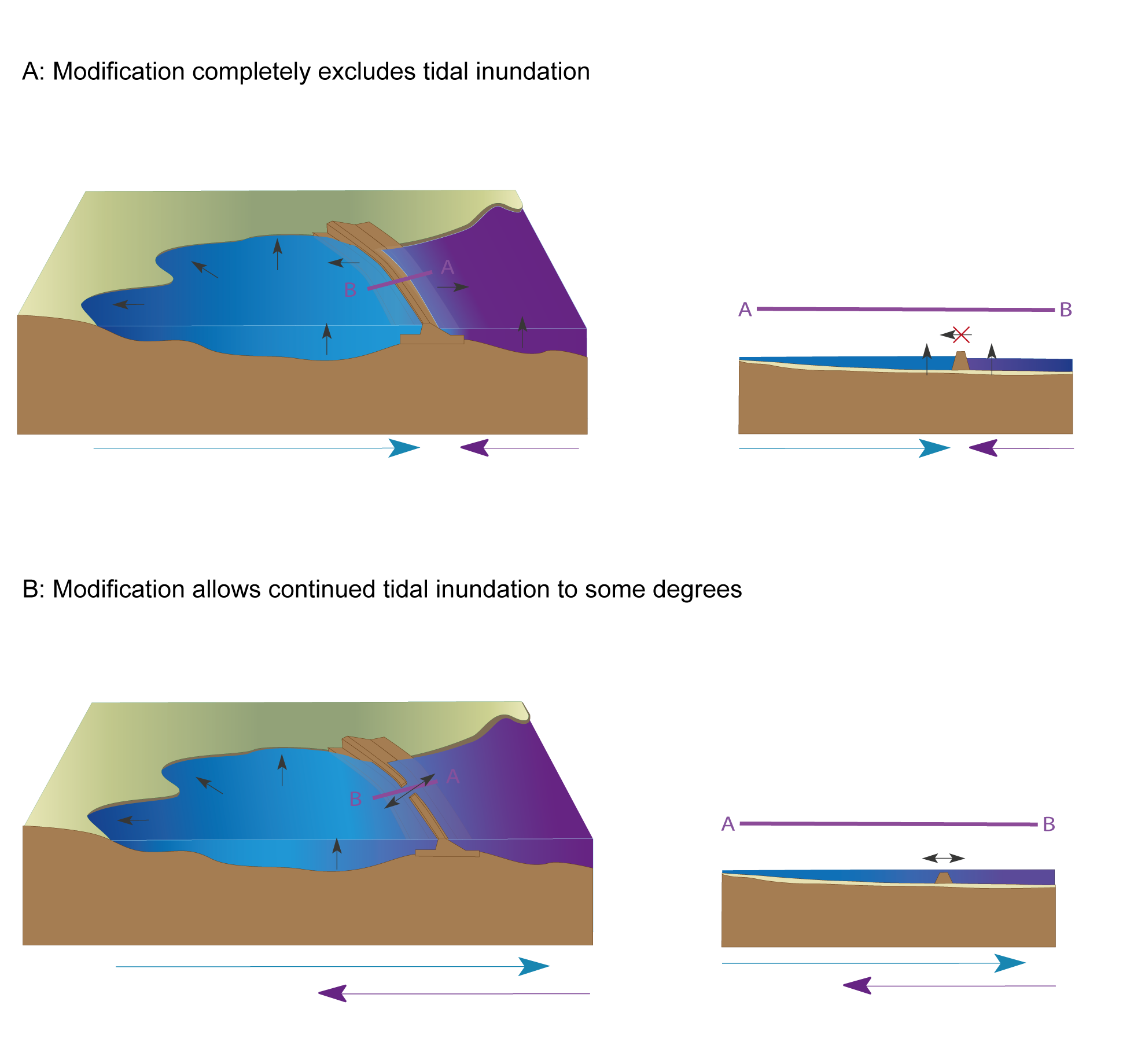|
|
BundingA bund is an embankment or dyke. Bunding refers to the construction of a thick wall including an embankment (a thick wall of earth), dyke (a thick wall), dam (a wall), levee (a raised bank), or weir (a low barrier), etc. that may restrict water flow over the ground and/or raise water levels. Bunds are often either earthen, rock, or concrete in material. Quick links
Bunding – Bund outside a channelSelect from the tabs below A bund on a wetland outside a channel often raises or stabilises water levels in the wetland and can make the water persist longer. Bund within a palustrine or lacustrine wetlandA bund in a palustrine or lacustrine wetland may raise or stabilise water levels in the wetland and increase wetland extent and water permanency. In some cases, bunding in a palustrine wetland may increase wetland extent and depth to such a degree that the wetland is converted to a lacustrine wetland system. Applicable Wetland Habitat Hydrological Modification:
Bund in an intertidal wetlandA bund in an intertidal wetland may restrict the landward movement of tidal water interfering with the existing tidal inundation regime. This may also raise or stabilise freshwater water levels. Bunding may completely exclude tidal inundation (see ‘a’) or may enable some continued tidal inundation (see ‘b’). Exclusion of tidal inundation can cause the wetland immediately upstream of the bund to change to a palustrine or lacustrine wetland system. Note that tidal inundation does not always equate to saline inundation as the upper limit of the tide may be fresh water that is moved by the tidal movements. Applicable Wetland Habitat Hydrological Modification:
Last updated: 7 June 2023 This page should be cited as: Department of Environment, Science and Innovation, Queensland (2023) Bunding – Bund outside a channel, WetlandInfo website, accessed 8 May 2025. Available at: https://wetlandinfo.des.qld.gov.au/wetlands/ecology/processes-systems/anthropogenic/hydro-concept-mod/bunding/out-channel.html |

 — Department of the Environment, Tourism, Science and Innovation
— Department of the Environment, Tourism, Science and Innovation



